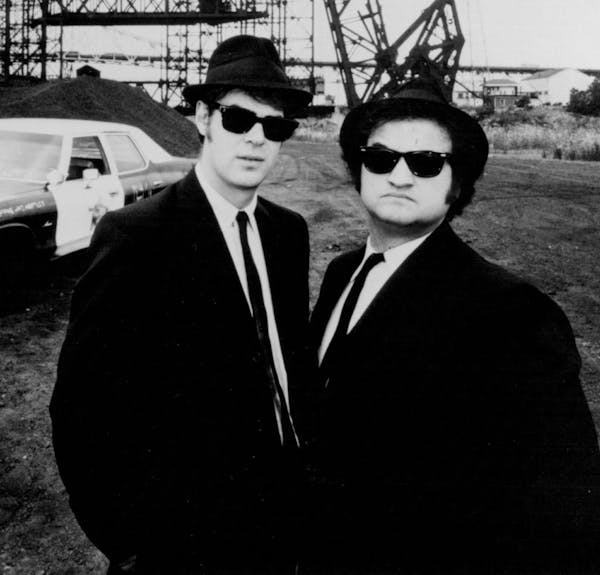CHICAGO
I was visiting relatives in India in 1986, boasting about how I had just escaped small-town Iowa to attend college in the outskirts of Chicago.
"Oooooh!" said one cousin, eyes widening as his hand curled into the shape of a gun. "Al Capone!"
Not much has changed since then. This may be the year of the Cubs, but outside the friendly confines of Wrigleyville, outsiders still imagine the city as Sean Connery described it to newcomer Kevin Costner in "The Untouchables": They send one of yours to the hospital, you send one of theirs to the morgue. That's the Chicago way.
"I flew in yesterday and I had some guy next to me say he couldn't bring his wife because he knew it's not safe to walk around," said former Chicago firefighter Steve Chikerotis last month in his hometown's revitalized North Lawndale district. "That's the image people are getting, and it's false."
Chikerotis is doing his part to change the perception. He's the technical adviser for "Chicago Fire," one of four network dramas currently being shot in the city by producer Dick Wolf, who famously used New York City as the playground for his wildly successful "Law & Order" franchise.
Chicago is home to more than 10 other series, including "Empire," "Shameless" and "The Exorcist."
But even a Midwest version of "L&O's" Jack McCoy would have a hard time making the case that the city is a modern-day Pleasantville. Chicago is recording its deadliest murder rate in decades. During the presidential campaign, Donald Trump described it as a gang-infested war zone.
Character issue
When producers do try to tackle deeper issues, backlash can follow. Just ask Spike Lee. His 2015 film "Chi-raq," which took an unflinching look at gang violence in the city, drew local outrage — and little interest at the box office.
What Chicago needs is a Mary Richards, whose spunk shaped Minneapolis' identity as a safe haven for career women, or a Sonny Crockett, who made Miami seem the coolest place on Earth.
What does it have? William H. Macy's drunken lead in "Shameless," who is more likely to give you a tour of South Side dive bars than the Art Institute of Chicago, and "Empire's" conniving record executive Lucious Lyon, who divides his time between boardrooms and prison. The 1970s sitcom "Good Times," set in the Chicago projects of Cabrini-Green, confirmed people's worst fears about urban living.
The Wolf procedurals come the closest to offering up admirable ambassadors. In "Chicago Justice," set to premiere sometime early next year, they're represented by Philip Winchester's earnest assistant city attorney and his boss, played by "Rocky" veteran Carl Weathers.
"I think these characters will help," said former Cook County state's attorney Jack O'Malley. As the show's technical adviser, he helps ensure that the courtroom scenes resemble the real thing. "These actors are showing a more in-depth side to these people on the front lines and why they do it."
Yuri Sardarov, an actor on "Chicago Fire," knows there's only so much his character, or a prime-time TV series, can do.
"The issues are bigger than an entertainment show can possibly perceive," said Sardarov, who attended high school in the area. "The city of Chicago is hamstrung and strangled a bit, but the last thing it needs is a network TV show that skirts around deeply seated things that may or may not need intervention."
Picture perfect
At the very least, these new productions show off the city's visual attributes — the cut of its downtown skyline, the spectacle of Lake Michigan lapping at the edge of downtown, the bustle of the "L" trains.
While "Chicago Justice" takes full advantage of Cinespace Chicago — the largest soundstage in the United States outside of Hollywood — crews are constantly out and about, shooting locations from the Miracle Mile on Michigan Avenue to Muslim neighborhoods.
"I love Chicago," said "Justice" show runner Michael Chernuchin, who admits that the crime rate used to be the first thing that came to his mind when the city came up in conversation. "When I walk down Michigan Avenue, I think, 'This could be New York, but without the bums on the street.' It's just so clean."
The Association of Film Commissioners International, which serves movie and TV producers around the globe, estimates that about 40 million tourists choose their destination each year because they saw a film shot in that locale.
But whether prime-time publicity can counter the torrid headlines is up in the air. According to the Chicago Tribune, the city had more visitors than ever in 2015, but convention booking and the money spent on attracting tourism are both expected to be down this year.
As for the locals, most seem thrilled to get more time in the Hollywood spotlight.
"Cubs traffic is frustrating, but if these guys block off roads to shoot, instead of getting upset I get excited," said Uber driver George Gonzalez, picking up passengers after a party to celebrate the 100th episode of "Chicago Fire."
When Michael Bay shot one of the "Transformers" movies downtown, Gonzalez and his son went out of their way to go watch the filming.
After seeing the results on the big screen, he said he was practically giddy: "Hey, that's our building they're destroying!"
Now that's the Chicago way.
612-673-7431 • @nealjustin
